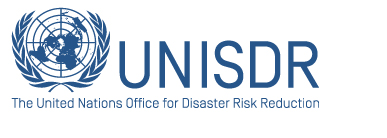By Municipal Agreement, the Mayor of Chacao committed to reducing disaster risk and the vulnerability to climate change through the adoption of legal instruments to transform the municipality into a “resilient city"; establish meetings between the Institute of Civil Protection and Environment of Chacao, community organizations and the business network to provide training on the Municipality’s Risk Management tools; and present and disseminate risk maps by neighborhoods and areas of concentration in order to mitigate disaster damage and allow for proper city planning, among other measures.
Meanwhile, residents of the Chacao Municipality will form volunteer work teams, participate in the Local Risk Reduction capacity building activities and create neighborhood committees by sectors to raise awareness in the community on disaster risk reduction issues, identifying potential threats to which the community is exposed, among other actions.
Mayor Graterón recalled that, last year, the Office of the United Nations for Disaster Risk Reduction (UNISDR) recognized the Chacao environmental and risk management model, with its distinction as Winner of the Global Campaign: "Making Cities Resilient: My City is Getting Ready!"
"We are very proud because, in addition, UNISDR designated Chacao as the Municipality of the Month of November of the Resilient Cities Global Campaign and published our achievements on its official website. Without a doubt, we are a leading municipality in risk reduction, environmental management and sustainable management of municipal solid waste," said Graterón.
The Municipal Risk Reduction Agreement provides for a period of five years and was formalized during the "Resilient Chacao. Local Government, citizens and businesses as actors of disaster risk reduction. Chacao 2013" event, which was developed in the framework of the 15th anniversary of Civil Protection and Environment. The keynote speaker was Mr. Ricardo Mena, Head of the Regional Office for the Americas of the United Nations Office for Disaster Risk Reduction (UNISDR), who spoke about the development challenges and opportunities of resilient cities, as a way to achieve sustainable development in the region.
Chacao has an informative online platform called Information System for Environmental and Risk Management of the Chacao Municipality (SIGAR), which aims to ensure the "right to know" and promote the incorporation of risk management in the citizen culture. It has also promoted programmes such as Eco-Schools, which has taught more than 1,200 children in order to instill environmental and risk reduction culture in the schools. There are also Environmental and Risk Management plans (2011-2016) and Municipal Prevention and Mitigation Action plans.
"Many risk situations are preventable. Governments must assume responsibility, as we do in Chacao, and neighbours must demand and participate in hands-on programmes with the public and private sector," said Graterón, referring to the actions to strengthen municipal resilience, such as rebuilding walls to mitigate the risk of flooding in Seca and Chacaíto, the stream monitoring system, the construction of an extensive network of drains, and the formation of the Business Security and Emergency Network, consisting of more than 50 companies prepared to react to adverse events.
Related Links:




